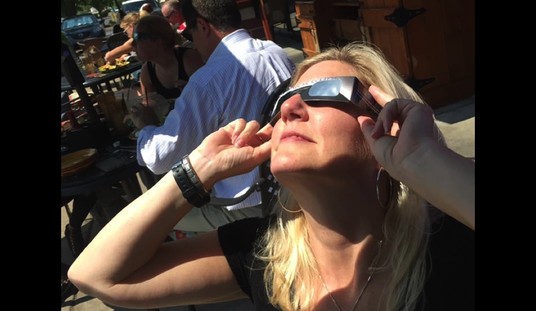
Former Obama wartime consigliere and ballerina, Rahm Emanuel, was fond of saying, “You never want a serious crisis to go to waste.” The corollary to that, at least under the Obama Administration, was that you should never miss the opportunity to manufacture a crisis.
In December 2015, a husband-wife team of KnownWolvesTM, Syed Rizwan Farook and Tashfeen Malik, attacked a training event/Christmas party and killed 16 people and wounded 24 before they were killed. One of the items discovered was an iPhone belonging to one of the suspects. According to the FBI, this iPhone might be critical to the investigation. Unfortunately, the iPhone was encrypted and unless Apple were forced to break the encryption, valuable information would be forever lost. Thus we’ve found our first element in a crisis not to be wasted. Because the FBI had been agitating for some time to force phone manufacturers to build in a “backdoor” so investigators could, if it struck their fancy, bypass user encryption.
Thereafter, on February 9 and March 1, 2016, then-FBI Director James Comey testified before Congress, in substance, that the FBI was not able to obtain access to data on the Farook iPhone, and then that it would require assistance from the manufacturer, Apple, to do so.
Just one problem. Virtually none of this was true.
Driving the news: The new report from the DOJ’s Office of the Inspector General finds the FBI unwittingly misled Congress about exhausting all options to break into iPhone of a suspect in the 2015 San Bernardino terrorist shootings.
“None of this changes what we already knew, that the FBI can conduct investigations without backdoors. In fact, this validates it,” Rep. Will Hurd (R-Texas) told Axios.
The report: Former Director James Comey made the phone the focal point of Congressional testimony in 2016 that the FBI was powerless to conduct some investigations without new laws or a court order to allow it access encrypted data.
But the FBI subdivision that ultimately found a private sector solution — the Remote Operations Unit (ROU) — didn’t even know about the iPhone woes until after the squabble between the FBI and Apple went to court.
- Elements in the FBI wanted a finger on the scale: Per the report, one official “became frustrated that the case against Apple could no longer go forward, and he vented his frustration …[H]e expressed disappointment that the ROU Chief had engaged an outside vendor to assist with the Farook iPhone, asking the ROU Chief, ‘Why did you do that for?'”
Meanwhile: Political forces are rallying to make a new push for encryption backdoors:
- The New York Times reports that the DOJ met with researchers that claim they can solve a key problem in regulating encryption, which is that every known expert in cryptography believes that creating a digital entryway for law enforcement risks a security catastrophe.
- Politico reports that the Senate Intelligence Committee hosted Manhattan District Attorney Cyrus Vance on Friday to speak on the issue.
How can the DOJ argue this to lawmakers? The central tenant of the DOJ’s argument is that there’s no way to conduct critical investigations without extraordinary access into cellphones. The FBI report has not done wonders for their credibility on that specific point.
- Sen. Ron Wyden (R-Ore.) said in a statement: “It’s clear now that the FBI was far more interested in using this horrific terrorist attack to establish a powerful legal precedent than they were in promptly gaining access to the terrorist’s phone.”
Here we see both elements of the Rahm strategy in play. First, the encrypted iPhone was seized upon as the Holy Grail of the investigation (fact check: the phone has been available for examination for well over a year and nothing new has happened in this investigation suggesting the likelihood that the iPhone was not terribly vital). Then the crisis was bootstrapped as a way of trying to force Apple to build access to their iPhones that Justice had wanted for some time but had been unable to get done.
While I understand the FBI’s argument, I’m definitely in the screw-you camp of government access to encrypted devices. We’ve seen that the police, until Riley vs. California, believed they could search your phone incident to any detention. We’ve seen that Customs and Border Protection agents have routinely demanded travelers allow them to examine the contents of laptops and phones. In short, you simply can’t trust the government or its agents to act responsibly if they want to do something…either by necessity or just because they wanna.
I hope Apple, Motorola, and other manufacturers hold the line on this and continue to improve the standard of encryption because I’d much rather have a random FBI investigation stymied than expose millions of fellow citizens to the inevitable abuse that will come with guaranteed government access to your phone and computer.














Join the conversation as a VIP Member